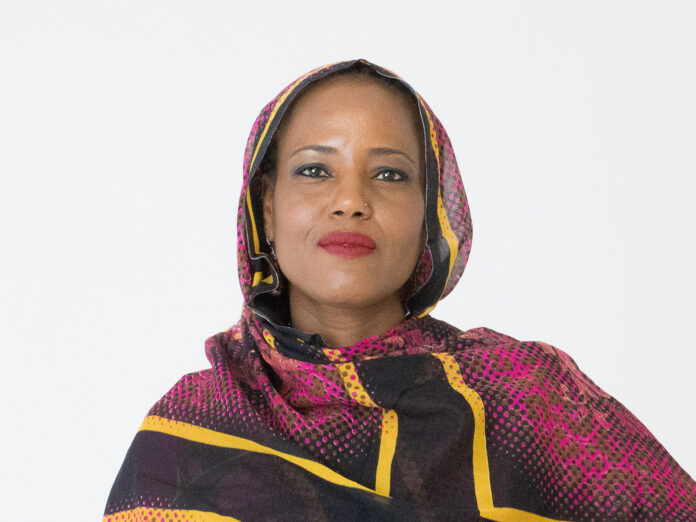Aziza Brahim’s homeland of Western Sahara is listed by the UN as the last remaining colony in Africa. Under Spanish control until 1976, the territory was then annexed by Morocco and has been under occupation ever since. Denied self-determination, many of its people, the Sahrawi, were forced into exile in refugee camps in the Algerian desert. Those camps are where Brahim was born, her mother having fled the family’s ancestral home following Morocco’s military invasion.
Aziza Brahim’s homeland of Western Sahara is listed by the UN as the last remaining colony in Africa. Under Spanish control until 1976, the territory was then annexed by Morocco and has been under occupation ever since. Denied self-determination, many of its people, the Sahrawi, were forced into exile in refugee camps in the Algerian desert. Those camps are where Brahim was born, her mother having fled the family’s ancestral home following Morocco’s military invasion.
PINK FLOYD ARE ON THE COVER OF THE NEW UNCUT – HAVE A COPY SENT STRAIGHT TO YOUR HOME
Growing up, Brahim recalls singing as the principal form of entertainment, and she was soon setting to music the verse of her grandmother, Lkhadra Mint Mabruk, a celebrated Sahrawi writer, revolutionary and feminist hero known as “the poet of the rifle”.
In her teens Brahim was educated in Cuba before returning to the desert in 1995, where she joined the National Sahrawi Music Group. She then chose Spain as a suitable base from which to raise the plight of her oppressed people via her music.
After releasing her debut album in 2012 – which included settings of her grandmother’s poems – she was signed by Glitterbeat, for whom she has recorded a series of proudly defiant albums full of moving songs yearning for her homeland and espousing the cause of freedom.
A fearless moderniser who at the same time sounds somehow ancient, her work to date has found acclaim in world music circles without making the transition from a WOMAD audience to the mainstream in the way that, say, Tinariwen have done. Deeply rooted and yet sonically adventurous, Mawja should, if there is any justice, change that.
‘Mawja’ means ‘wave’ in the Hassaniya dialect of Arabic, a reference to the radio signal which growing up in the refugee camp kept her in touch with the outside world and the electronic “waves” that now carry her music and the story of her people to a wider audience.
Since her last album, 2019’s Sahari, much has happened to turn Brahim’s universe upside down and the travails have fed into Mawja to create her most accomplished and rounded work to date. With her mother, brothers and sisters and one of her daughters still living in the barren region of the Algerian desert known as The Devil’s Garden, she suffered a crisis of anxiety, characteristic of many exiles separated from their loved ones, which was exacerbated by the Covid pandemic. Then in November 2020 the uneasy 30-year ceasefire between Morocco and the Polisario Front, the armed wing of the Sahrawi liberation movement, broke down and fighting resumed.
In 2022 came the death of the grandmother whose revolutionary poetry Brahim had sung so stirringly and who had taught her to be “proud and tenacious” in the face of adversity. Out of anguish, though, came inspiration, and the spirit of the great matriarch permeates the album from “Duaa”, a blues-drenched prayer in her honour, to the tender tribute “Ljaima Likbira”.
Brahim’s default musical currency is a resonant African desert blues freighted with a mournful yet defiant passion, but with a distinctly feminist perspective that is as different from Ali Farka Toure or Tinariwen as, say, Bessie Smith was from John Lee Hooker or Robert Johnson.
It’s a potent and compelling sound, inextricably linked to the resistance struggle but with an inherent dignity and elegance – not merely a cry of protest at oppression but a celebration of a proud culture, too. Her country may have no official status but it “exists without restrictions in our words, in our memory and in our voices.”
Playing the traditional Sahrawi hand drum known as the tabal and accompanied by Western rock instrumentation, her soulful voice has a delectably creamy tone capable of subtly different emotional shading. With its flute and chiming guitar there’s a folkish vibe to “Marhabna 2.1” (‘Welcome’), a syncopated reimagining of the opening track on her 2012 album. There’s more of a defiant edge to “Haiyu Ya Zawar” (‘Cheer, Oh Revolutionaries’), a song of resistance and struggle with some thrilling flamenco-style guitar played on a Cuban tres, while the raw, fiery blues-rock of “Metal Madera” was inspired by Brahim’s admiration for The Clash.
Amid the militant rallying cries there’s a healthy dose of myth and magic, too, particularly on the gently swaying “Bubisher” about a legendary bird, the appearance of which in Sahrawi folklore is meant to be a portent that better times are on the way. The Sahrawi, it seems, desperately need another sighting. Meanwhile, Mawja is an eloquent homage to the indomitable spirit and rich culture of Brahim’s troubled but proud people.



